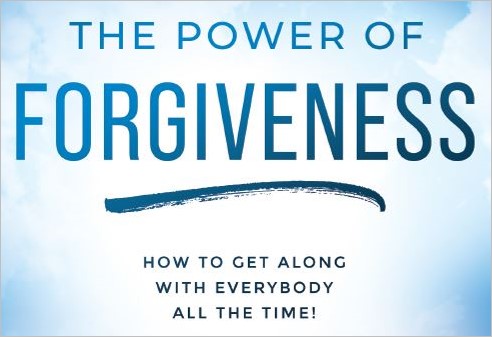Jesus’ ministry was a ministry of mercy. He healed the sick, opened the eyes of the blind, comforted the grieving, and even raised the dead to life. The Bible speaks of Jesus being “moved with compassion.” He has a huge heart for the suffering people.
It is vital to know how to minister to people in crisis. In doing this, your deportment and spirit are just as important as your words. In fact, it is often your presence that ministers far more than what you say. The fresher the grief, the fewer the words you need to speak. Job’s friends helped him by sitting silently with him for days. But the moment they opened their mouths, they lost their ministry to their friend. When my mother passed I sat at the graveside grieving beyond words. I glanced to the side and saw two of my best friends from elementary school. Their concern and effort to attend lifted my heart in a way I cannot describe. It was not what they said, it was simply their presence that helped me.
The purpose of this article is to equip you to minister to hurting people. I want to empower you to encourage those who are suffering. Our job is to minister “to” individuals, not “at” them. Sickness, death, job loss, divorce, emotional breakdown, immobilizing guilt, relational conflict and a host of other factors bring unspeakable pain to the hearts of people. Hurting people don’t need quick-fix, one liners—they need companionship.
When Jesus’ friend, Lazarus, had died, Martha and Mary were living in the aftermath of their brother’s passing. Many valuable lessons on ministering to the hurting can be found by considering this account in John chapter 11.
Be Personal. Jesus did not send an angel to comfort Mary and Martha, He went personally. At the tomb of Lazarus, “Jesus wept”. This may be the shortest verse in the Bible, but it is very significant. Consider the heart of Jesus. At the tomb: He witnessed their grief, empathized with their loss, internalized their pain, and entered into their suffering. Jesus felt deeply the hurt of His friends.
It’s impossible to bear a burden you cannot feel. Listen to the drawing on your heart strings and you will discover who you need to reach out to. When you are in touch with God, you instinctively know who needs your attention.
Jesus touched blind eyes and made them whole. Jesus’ touch was a healing touch, a caring touch, a life-giving touch. He is not here in the flesh, but Jesus is still touching others through people like you. Ask God everyday who you can encourage.
Ministering to people at their time of need makes a lasting impression—“Of some having compassion making a difference.” Cold logic does not compute in times of crisis and the heart-less quoting of Scripture in the face of tragedy does not help. You don’t have to be the “Bible-answer man” by providing an explanation—just be there!
After visiting the Taj Mahal in India, we visited another historical site in Agra called the Red Fort. At the entrance sat a man with the most twisted, deformed body I have ever seen. His arms and legs were no bigger than a broom handle. Silently he sat while hundreds passed him by. You don’t have to speak a man’s language to kneel, look him in the eye, give him some money and say, “I bless you in Jesus’ name.” People who are sick and afflicted can’t help it. They are trapped in a body not of their choosing. You can minister to people simply by being personal.
Be Prayerful. “Then they took away the stone from the place where the dead was laid. And Jesus lifted up his eyes, and said, Father, I thank thee that thou hast heard me…” (John 11:41). Jesus not only wept, He prayed. His first response was to “lift up his eyes” to heaven. Praying “with” and “for” people is a helpful way to minister to the hurting.
“Intercessory prayer is an intercontinental ballistic missile which God has placed in our hands. It can be fired to any spot on the face of the earth. It travels at the speed of thought and it always hits its target.”
A prayer burden is when the things that affect others begin to affect you. When you see someone struggling, hurting, or sick go ahead and ask, “Can I pray with you right now?” Years ago I walked into Men’s clothing store. The salesmen came over and asked, “How can I pray for you.” I must have looked heavily burdened for the sales associate to ask such a question. Then he said, “I can’t pray in the store, but we can pray outside. I followed him out and he prayed over me!
At work, church, or in the market you can ask, “How can I pray for you?” I cannot recall a single instance of having a person refuse the offer of prayer.
Be Practical. After calling Lazarus back from the dead, notice the practical instructions of Jesus. “Take the stone away…” (11:39), and then, “Loose him—let him go” (v. 44). When Lazarus stumbled out bound in grave clothes, he needed to be set free.
Be practical—ask the Lord, “How can I encourage this person? An email? A card? A visit? A text? A gift? A call?” I am reminded of a dear lady I met named Ida Brinkman in Kirtland, Ohio. When we first met, she had been paralyzed for forty-nine years due to polio. Her health was so damaged that she required a breathing machine with a tracheostomy breathing tube in her throat. She had the most radiant countenance I have ever seen. We ask her caretaker how we could encourage Ida. She said, “It doesn’t take much—a call, a card, a flower.”
Manley Beasley was an evangelist who modeled faith under severe suffering. He had twenty-one unrelated terminal illnesses. God would heal him of one thing, and then he would fall ill from another. On one occasion he was hospitalized with incredible pain. Six preachers flew in to “cheer him up.” But the suffering was so severe that their company was more of a burden than a help. He was overwhelmed with pain when a humble, homely woman walked into the room. It was Corrie Ten Boome. When she entered the room, Jesus came with her. He remarked, “I don’t know whether the room went to heaven or whether heaven came to that room.” Though the pain did not subside, he found strength to cope with it after her visit. When she came to visit she brought Jesus with her!
You can take people to Jesus in prayer. And you can take people to Jesus “in person”—when you are filled with the Holy Spirit. Duncan Campbell said, “The greatest thing about a man is his unconscious influence.”
Be Pro-active. “Our friend Lazarus sleepeth—I go to awake him out of sleep” (11:11). Jesus left where He was and went to Lazarus. Don’t wait to be called on to minister to someone. Don’t wait for an appeal from the pulpit. Don’t wait until you are asked to help. When you become aware of a situation, DO SOMETHING!
And when you visit the suffering never say, “If I can help just let me know.” Rather say, “How can I help you?” Or even better, “Let me take care of this for you.” When you see a need—meet it. There are things you can do to help.
BRING THE BOOK. When someone gets sick, the Lord may place an appropriate Scripture on you mind to minister to the sick.
BRING THE CHECKBOOK. When people are sick they may be out of work. They have added expenses such as medicines, travel, hotels, meals, and other things. Listen to your heart about sowing a financial gift into their lives.
BRING THE COOKBOOK. You can bring them dinner, take them out for meal, or purchase a gift-card. Even a cup of cold water given in Jesus’ name gets attention in heaven.
Be on the lookout for opportunities to minister. Keep your eyes wide open to see hurting people. Be sensitive to people with burdens and needs. Get out of your comfort zone. You don’t have to have all the answers—you just need to know the One who does!
Be Persistent. Look at the obstacles Jesus faced—the misunderstanding of the disciples, the skepticism of Thomas, the grieving of Mary and Martha, and the unbelieving Jews. But He didn’t let this hinder his ministry.
Carrying a chronic burden is exhausting. People who face ongoing episodes get very tired. At church we prayed over people who were weighed down with huge difficulties. Groups huddled and prayed around those who had requested prayer. The next day a woman emailed to express her appreciation, “Thank you so much for praying for me. I was SO tired.”
One man commented, “I am going to spend the rest of my life encouraging people.” I like that! After the funeral, go back and visit the survivors two weeks or two months later. Most friends have moved on by then and you can help them process their grief through your continued concern.
Stay in touch with God about who you can minister to. Be persistent.
Be Positive. Proverbs 25:11 states, “A word fitly spoken is like apples of gold in pictures (a setting)of silver.” A timely word is both beautiful and valuable. So speak words of encouragement.
In addition to speaking words of hope we should pray prayers of faith. James 5:15-16 says, “The prayer of faith shall save the sick, and the Lord shall raise him up; and if he have committed sins, it shall be forgiven him. Confess therefore your sins one to another, and pray one for another, that ye may be healed.” When I was diagnosed with cancer, I asked my friend Ralph Sutera how to pray for sick people. He said, “When you pray for the sick, you should always pray in faith—believing for healing. Then if God chooses not to heal, at least it was not your unbelief that missed the miracle.” My heart resonates with this. Sick people don’t need to hear fifteen minutes of disclaimers and theological/philosophical unbelief. They are longing to hear someone pray a prayer of FAITH—not a prayer of doubt.
Things NOT to Say
“God is teaching you something through this and you will have a larger ministry to others.” A pastor and his wife had just lost both of their children in an automobile crash as they were driving home from Bible College. One of their pastor friends dropped by and told them that they would be better able to offer comfort to other parents facing the same tragedy. What a mindless, nonsensical statement to make. This grieving pastor later commented, “I wonder if he would like to have this experience so he could better minister to those suffering similar loss?”
“She’s better off.” Some well-meaning soul wrote me when my mother passed away and used this line. Of course she was better off in heaven, but I wasn’t!
“My cousin had the same disease as you and he did not last two months.” A word spoken in season is a great help, but a word like this only amplifies the uncertainty and the unknown. Don’t relate horror stories.
“Are you going to be alright?” Who can know what the future holds. Even if the prognosis is bad, there is still the God-factor. Let it be the sick person or family member’s choice to share information. Often, when an individual gets a “bad report” they do not know what to think, or say. Avoid putting pressure by asking pointed questions they cannot answer.
“People are watching you.” Depending on the situation, it is unlikely that the hurting are able to calculate the impact of their actions. They don’t need a lecture, they need comfort. They may be in shock and unable to think normally for a season. Don’t put more pressure on them—they are already under a heavy load.
“How are you doing? I think you are doing great.” Larry Crabb writes, “When life kicks us in the stomach, we want someone to be with us as we are, not as he or she wishes us to be. We don’t want someone trying to make us feel better. That effort, no matter how well intended, creates a pressure that adds to our distress” (From Shattered Dreams).
“Did you notice anything wrong before they ended their life?” Don’t act like a member of the S.B.I.—Spiritual Bureau of Investigation. Avoid asking self-serving questions. You are not on a fact-finding mission—you are on a mission of mercy. Grieving people don’t need an interrogation.
“You may have lost a child, but at least you still have others.” Hurting people will not be helped by those who have the sensitivity of a rock. Belittling someone’s loss does not minister to them. Job and his wife had more children after his ordeal with Satan, but that did not erase the void of losing their first ten children. The immediate answer to loss is not replacement—it’s coming to grips with what has happened.
“I know how you feel.” You may have had a similar trial, but your experience is not an exact replica of theirs. There are a host of particulars which are unique in every situation. You may feel led to identify with some portion of their situation, but you do not know how they feel.
Platitudes to Avoid…
- “God has something better planned.”
- “Christians should never be depressed.”
- “The Lord won’t give us more than we can handle.”
- “You are not alone, because God is always with you.”
- “Call me if you are feeling down.”
- “All things work together for good…”
- “Death comes to all of us sooner or later.”
- “Death is a natural part of living.” (Really? What is natural about the soul being separated from the body?)
- “You are young and can have more children.”
- “You will probably remarry.”
- “God is in control.”
What to Say…
It is always appropriate to say a kind word or give a brief anecdote.
- “I am so sorry for your loss.”
- “We love you and are praying for you.”
- “(Name of the deceased) meant so much to us.”
- “I am believing God to raise you up.”
- “We greatly appreciated (name).
What is Helpful…
- Go to see them.
- Listen to them.
- Love them. A hug or firm handshake can help immensely. Your presence is more beneficial than your wisdom.
- Weep with them that weep.
- Pray with them. If they are sick, pray the prayer of faith—not the prayer of unbelief. If someone has died, pray a comforting faith-based prayer over those who remain.
- Assist with practical needs: food, finances, and chores. Consider this instructive verse from the book of Job. “Then came there unto him all his brethren, and all his sisters, and all they that had been of his acquaintance before, and did eat bread with him in his house: and they bemoaned him, and comforted him over all the evil that the LORD had brought upon him: every man also gave him a piece of money, and every one an earring of gold” (Job 42:11).
- Don’t stay too long or expect to be treated as a guest.
There is a world of hurting people you can touch with God’s love. “The greatest proof of your love for Christ is that you care for those who belong to Him”, said J. B. Stoney. But don’t limit your ministry to believers. A compassionate response can make a huge difference to those who are unsaved. Your greatest test is when you are able to bless someone else while you are going through your own storm. Jesus ministered to the dying thief on the Cross—AMAZING!
In Luke 4:18 Jesus said, “The Spirit of the Lord is upon me, because he hath anointed me to preach the gospel to the poor; he hath sent me to heal the brokenhearted…” Jesus mission was to heal broken-hearted people. Let’s get on mission with Jesus in helping hurting people. START TODAY.
Harold Vaughan
August 2015
NOTE: We are currently experiencing problems with our comments section below. If you would like to comment on this article, please e-mail us at [email protected]




